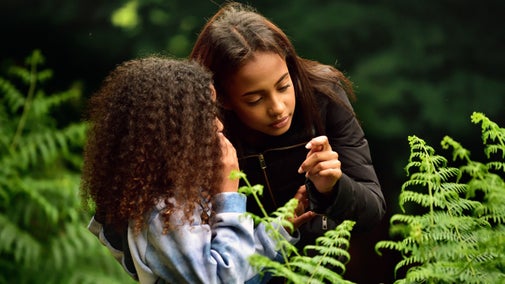
Donate
Everyone needs nature, now more than ever. Donate today and you could help people and nature to thrive at the places we care for.

Discover how the conservation team at Nunnington care for the numerous items in our collections, from hand-painted ceramics to tapestries and silverware. Come and learn the techniques we’ve mastered, and pick up some tips about how to care for some of your precious items at home. Also find out how we deal with certain unwelcome visitors to the Hall.
The role of a conservator is a never-ending task. As time moves on, the importance of preserving the Hall and its collection becomes ever more paramount, as well as more difficult.
Our specially trained conservation team work throughout the year to keep every item in our care in the best condition possible. The tiniest attention to detail and care can help protect it for another hundred years.
Have you ever wondered exactly what the team get up to seven days a week? Come and discover the role of a conservator. We welcome you to join as many of our short talks and demonstrations led by the team as you wish.
Explore the behind-the-scenes areas at Nunnington Hall and learn about how we care for the house and its collection.
Our volunteer guide will take you into areas not normally seen by the public to show you objects in our collection that aren’t currently on display and to talk about the work done by the House and Collections team.
Book on the day at Visitor Reception, £3.50. The tours are at 11.30am, 1.00pm & 2.00pm.
While the garden is commonly associated with wildlife, the house is rarely viewed as a habitat.
However, colonies of bats use our roof spaces as roosts, wild bees live in the chimney of our panelled bedroom, ladybirds hibernate in the crevices of our sash windows, and a solitary wasp might spend winter in the upper fold of a thick warm curtain.
But while some creatures are welcome at Nunnington Hall, others could quite literally destroy the hall from the inside out.

For this reason we have a conservation team that cares for the fabric and contents of the hall and they are on constant alert for signs of activity: insect carcasses on window sills or floors and patches of unexplained wear on a carpet which indicate the presence of woolly bears (carpet beetle larvae).
The oak beams so predominant in the Hall are a particularly attractive meal for a deathwatch beetle, and silverfish insects find books to be very tasty. The smallest of animals can drum up the biggest bills if their eating habits aren’t carefully controlled.
To tackle this we have insect traps throughout the Hall that attract and trap bugs so we have an instant insight into what is happening in a room and the scale of the problem. This revealed a problem with clothes moths which dine on anything with a wool or organic content.
By adding a pheromone capsule to the sticky pad we managed to decrease the number of male moths procreating. The conservation team have also greatly reduced the number of moths and larvae by cleaning and packing all our textiles and rugs, vacuum sealing them and then placing them in a big fridge. At -24C the freezing process kills off any moths or larvae present.
The battle against the bugs continues.
With your ongoing support, we're able to continue our vital conservation work. Thank you for helping to protect these special places.

Everyone needs nature, now more than ever. Donate today and you could help people and nature to thrive at the places we care for.

A dwelling is recorded here since 1249, but the current house grew out of a Tudor Hall. Over 450 years the house has been altered to create an atmospheric and comfortable home.

The garden at Nunnington Hall is the perfect place to enjoy some peace and quiet. Peaceful hidden spots, colourful peacocks and colourful flowers offer a great day out.

Read about the new research into the 19th-century owners of Nunnington Hall which helped us to trace the source of some of their wealth accumulated as derived from the slave trade

Read about our strategy, which focuses on restoring nature, ending unequal access and inspiring more people.

We believe that nature, beauty and history are for everyone. That’s why we’re supporting wildlife, protecting historic sites and more. Find out about our work.